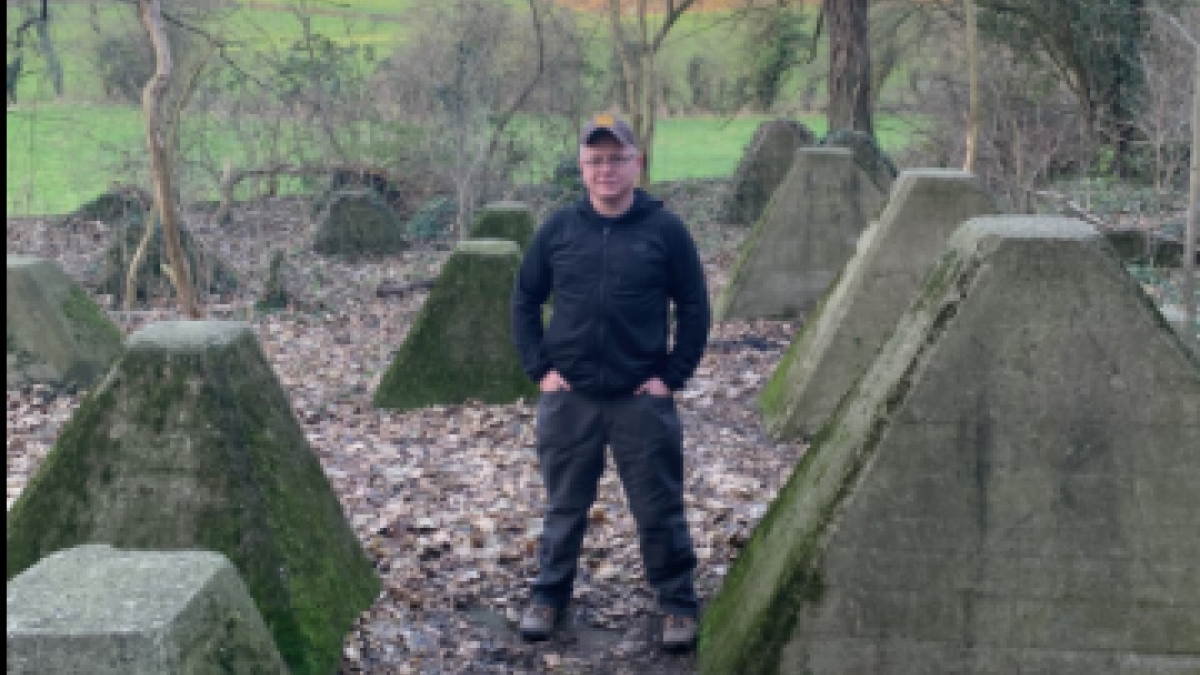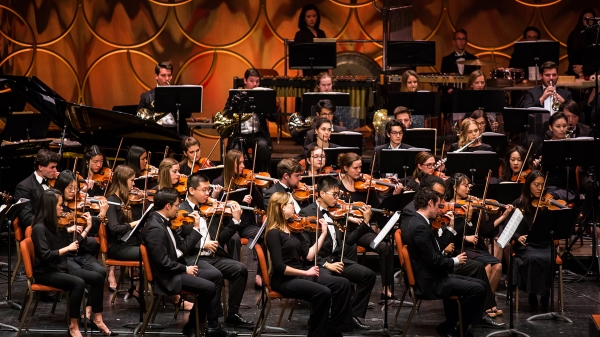Active-duty Army officer among first to graduate with master’s degree in WWII studies

Kelly Jones is among the first group of students in the country to graduate with a master’s in World War II studies.
Editor's note: This story is part of a series of profiles of notable fall 2020 graduates.
Kelly Jones grew up in a small town in western New York and has always been interested in pursuing a higher education. After receiving a bachelor’s degree from the Clarion University of Pennsylvania and a master’s degree in global and international studies from the University of Kansas, he wanted to return to school for an additional master’s degree.
He is among the first group of students in the country to graduate with a master’s degree in World War II studies, a degree program from the School of Historical, Philosophical and Religious Studies in partnership with the National World War II Museum that began in January 2019.
“My experience in the program has been a good one,” said Jones. “It has helped me understand World War II from a broad context, how it is portrayed in film, literature and other perspectives outside of the U.S. The program has also helped me understand the long-term global effects of the war that are still felt to this day.”
Jones is an active-duty Army officer stationed in Fort Leavenworth who used the Post-9/11 GI Bill to attend the program. We caught up with him to ask about his time at Arizona State University and the WWII studies program.
Question: What was your “aha” moment, when you realized you wanted to study the field you majored in?
Answer: My aha moment came as a kid growing up in western New York; I have always loved World War II history. I was a history major as an undergraduate and jumped on the opportunity for a master’s in history.
Q: What’s something you learned while at ASU — in the classroom or otherwise — that surprised you or changed your perspective?
A: Something I learned as part of the World War II studies program that changed my perspective was in the Decision Points I class taught by Dr. Citino. I have studied German operations in Russia from a military standpoint; the work by Geoffrey P. Megargee, “War of Annihilation: Combat and Genocide on the Eastern Front, 1941,” (read) as part of the class showed me the broader perspective of the Wehrmacht’s involvement in the "Final Solution." Before reading the book for the course, I only had a cursory knowledge of the events laid out in it. If Dr. Citino hadn’t assigned the book as part of the class, I never would have read it on my own.
Q: Why did you choose ASU?
A: I chose ASU for the World War II studies program and its partnership with the National World War II Museum.
Q: Which professor taught you the most important lesson while at ASU?
A: The professor that taught me the most important lesson while at ASU was Dr. Huxen (from the National World War II Museum). Part of the World War II studies 598 class, Leadership and Diplomacy, was to produce a reflection video for the final assignment. I chose to have dinner with General George Marshall for the task of exploring how he overcame a life-changing incident later in life. The task taught me that no matter what life throws at you, you can still persevere and be successful.
Q: What’s the best piece of advice you’d give to those still in school?
A: I would say two things for those still in school. Prioritize what’s essential for school, work and your personal life and focus on them. Having that focus will also help you with the second piece of advice, time management. Backwards plan off when your assignments are due and allot your time accordingly.
Q: What are your plans after graduation?
A: My plan for after graduation is to attend Baylor University’s doctorate program for education and organizational change. So immediately following my graduation from ASU in December of 2020, I start at Baylor University in 2021.
Q: If someone gave you $40 million to solve one problem on our planet, what would you tackle?
A: If I had $40 million to solve one problem, I would solve literacy.
More Arts, humanities and education

ASU Symphony Orchestra welcomes visionary conductor Jonathan Taylor Rush
Guest conductor Jonathan Taylor Rush will join Arizona State University’s Jason Caslor, director of bands, to lead the ASU…

Chemistry classes are key to art student's success
Amanda Barnette has a passion for art preservation. That means that, for the past four years, the Arizona State University…

ASU+GSV Summit tackles big questions about AI, technology, education
Editor's note: We'll be updating this story daily throughout the summit. The annual ASU+GSV Summit kicked off in San Diego on…